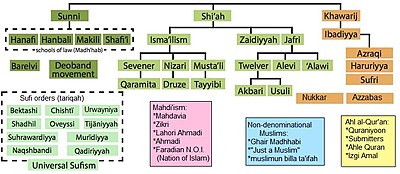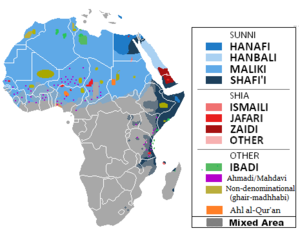Islam in Djibouti
According to Pew, 77% follow the denomination of Sunnism (primarily adhering to the Shafi'i legal tradition), whilst 8% are non-denominational Muslim, and the remaining 13% follow other sects such as Quranism, Shia, Ibadism etc.. After independence, the nascent republic constructed a legal system based in part on Islamic law.
Lewis, the polity was governed by local dynasties who also ruled over the similarly-established Sultanate of Mogadishu in the Benadir region to the south.
[10] In 2012, a law was passed that grants the Ministry of Religious Affairs increased oversight of Djibouti’s mosques, including of messages disseminated during Friday prayers.
Some imams reported being questioned by security services following sermons with strong political and social justice themes.
There were also reports of plainclothes officers monitoring the content of Friday sermons and the activities of people attending mosque services.
[5] According to article 23 of the Family Code, a non-Muslim man may marry a Muslim woman only after converting to Islam.


